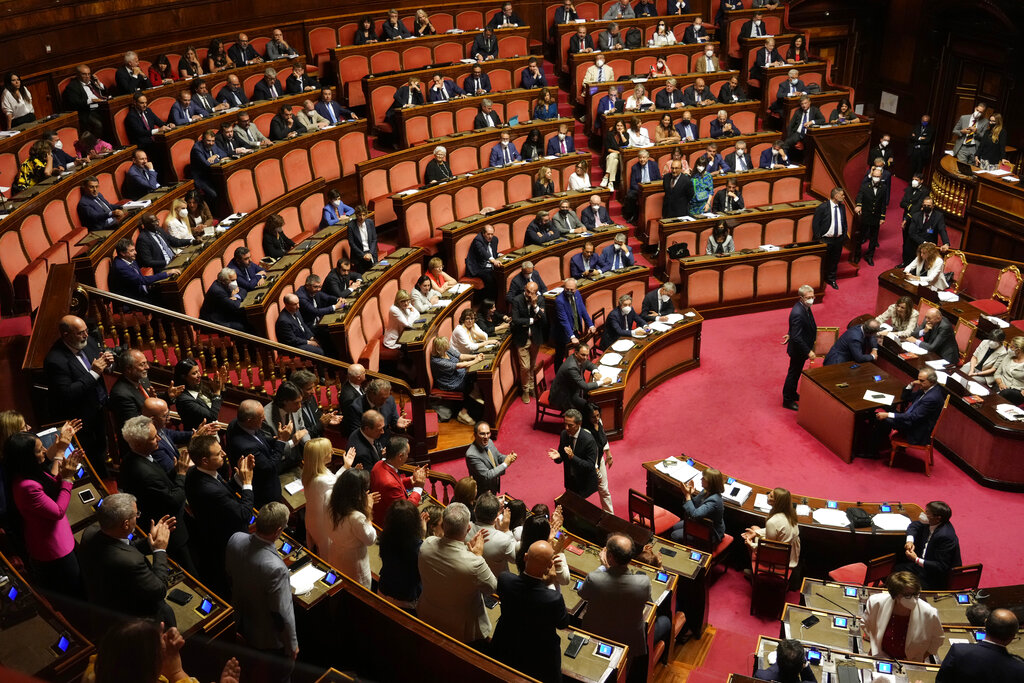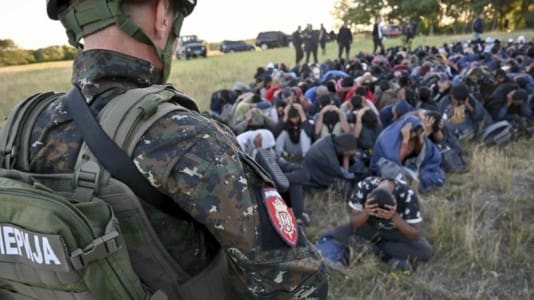After Mario Draghi submitted his resignation, which was promptly rejected by President Sergio Mattarella, the European Union’s third-largest economy faces an uncertain future. In turn, the euro currency dropped below parity with the dollar and may see more losses ahead.
As a former president of the European Central Bank (ECB), the independent Draghi enjoyed the confidence of foreign investors. This had a positive effect on Italy’s economic credibility – although the country is now indebted at 148 percent of gross domestic product.
Now, his leadership is coming to an end. The facts of the situation have come to the foreground and the psychological confidence boost Draghi brought no longer matters much. The current government crisis of Europe’s perennial problem child is hitting the European Union harder than comparable situations in previous years. After all, this was the third government to fail since the 2018 elections.
The latest crisis was brought on after the left-wing populist Five Star Movement refused to express their confidence in Draghi. The protest movement, which had become the strongest party in the previous election, has thus de facto left the coalition. In any case, the party had recently taken an increasingly combative position against its coalition partners.
But why is the situation today more difficult than in past government crises?
The European Union is in a massive energy crisis due to the sanctions against Russia. Added to this is inflation of the century; an unprecedented flood of money from the European Central Bank; the war in Ukraine; and the dramatic, seemingly unstoppable loss in value of the euro. Most recently, the euro has fallen below parity against the dollar.
If Italy, which is always seen as an uncertain factor in Europe, were to fall into an ungovernable state, it would be the equivalent of a match thrown on a dried-up pyre, one that has been built up for years. President Sergio Mattarella could not just spontaneously, but stubbornly refuse to call new elections and give either another politician or another Draghi the task of forming yet another government.
Since Draghi has ruled out taking on such a task again, early elections, which are due next year anyway, would be the most honest solution. But then the right-wing Fratelli d’Italia (“Brothers of Italy”) would be the strongest party. In the current polls, they are ahead of the social-democratic PD and Matteo Salvini’s right-wing League. Together with Silvio Berlusconi’s Forza Italia, a right-wing conservative alliance could form the new government.
If the most important country after Germany and France were to fall into the hands of such a government, it would be a nightmare come true for the European Commission. In addition to Poland and Hungary, it would have to deal with a third country that had broken from the mainstream.
It is uncertain what measures Brussels would take in response. However, there is no doubt that the situation could give the euro even less stability due to the internal disputes in the EU. The most important question, however, is: What happens before a new government is formed?






